Because her Haitian family is too poor to be able to buy paints for her, eight-year-old Ti Marie finds her own way to create pictures that make the heart sing. Ti Marie dreams of being an artist. Whenever she gets some time away from watching her little sisters and helping Mama in their market stall, she finds a cement wall or a scrap of waste paper and lets her imagination soar. Using whatever she can find to make a mark–bits of red brick, charcoal, white rocks–Ti Marie makes beautiful art. If only she had real paint, brushes, and clean white canvas, what wonderful pictures she could paint then! But Mama says there is no money for such things. Still, Ti Marie finds a surprising way to make her dreams come true.
Poverty
Beatrice’s Dream: A Story of Kibera Slum
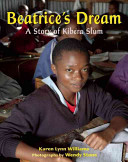
Beatrice is a thirteen-year-old orphan in Kibera, Nairobi – a Kenyan shantytown built on refuse and rubbish and one of the biggest slums in Africa. In this book she describes her life: her walk to school, the dust that blows between her teeth and the mud she wades through, her teacher’s down-to-earth encouragement, her fear of being alone, how safe she feels at school…This sensitive account in words and photographs reveals the realities of life for some of the world’s most deprived people – and offers hope as Beatrice follows her dream.
About Kibera slum: Kibera is in Nairobi, the capital city of Kenya, in east Africa. It is one of the largest slums in the world with over half a million people living there – about a quarter of the population of Nairobi. The slum covers 2.5 square kilometres (630 acres). There are no roads and few of the residents have modern toilets, clean drinking water or electricity. The crime rate is high and disease spreads rapidly in the unsanitary conditions. Many people come to Kibera from rural areas to look for jobs in the city. A large proportion of the children have become orphans because so many adults have died from AIDS – many people in Kibera are infected with the HIV/AIDS virus. A number of organizations work in the slum offering medical care, finding jobs and houses, and encouraging people to take part in sports and education. KIKOSHEP (Kibera Community Self-Help Program) provides care and advice for people with HIV/AIDS. They also have a youth center where youngsters like Beatrice can go for health information and advice. The center shows films and arranges sports and social events.
I first met Beatrice at the KIKOHEP primary school. Since then, she has graduated at the top of her class and is eligible to go on to secondary school. In Kibera, this is most children’s dream – they see education as the best way to escape from the slum. But sadly, many girls are sent away by their families into arranged marriages or end up on the street as prostitutes, so they are never able to realize their dream. The Kenyan Government and the United Nations have now started building new homes in Kibera so that they can move thousands of people out of the slum into better living conditions.
The Hangman in the Mirror
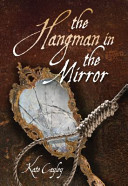
Françoise Laurent has never had an easy life. The only surviving child of a destitute washerwoman and wayward soldier, she must rely only on herself to get by. When her parents die suddenly from the smallpox ravishing New France, Françoise sees it as a chance to escape the life she thought she was trapped in.
Seizing her newfound opportunity, Françoise takes a job as an aide to the wife of a wealthy fur trader. The poverty-ridden world she knew transforms into a strange new world full of privilege and fine things — and of never having to beg for food. But Françoise’s relationships with the other servants in Madame Pommereau’s house are tenuous, and Madame Pommereau isn’t an easy woman to work for. When Françoise is caught stealing a pair of her mistress’s beautiful gloves, she faces a future even worse than she could have imagined: thrown in jail, she is sentenced to death by hanging. Once again, Françoise is left to her own devices to survive . . . Is she cunning enough to convince the prisoner in the cell beside her to become the hangman and marry her, which, by law, is the only thing that could save her life?
Featured in Volume VI, Issue 2 of WOW Review.
Fallen Grace
In Victorian London, impoverished fifteen-year-old orphan Grace takes care of her older but mentally unfit sister Lily, and after enduring many harsh and painful experiences, the two become the victims of a fraud perpetrated by the wealthy owners of several funeral businesses.
Biblioburro
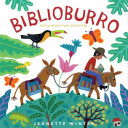
Luis loves to read, but soon his house in Colombia is so full of books there’s barely room for the family. What to do? Then he comes up with the perfect solution–a traveling library! He buys two donkeys–Alfa and Beto–and travels with them throughout the land, bringing books and reading to the children in faraway villages.
Featured in WOW Review Volume XII, Issue 3
The Talking Pot
A retelling of a Danish tale in which a magical talking pot causes a poor family to triumph over a rich couple.
Cesar Chavez
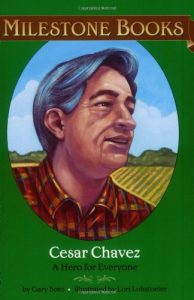 ¡Viva la causa!
¡Viva la causa!
¡Viva César Chávez!
Up and down the San Joaquin Valley of California, and across the country, people chanted these words. Cesar Chavez, a migrant worker himself, was helping Mexican Americans work together for better wages, for better working conditions, for better lives.
No one thought they could win against the rich and powerful growers. But Cesar was out to prove them wrong — and that he did.
The Impudent Rooster
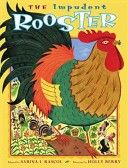
Using his amazing swallowing ability, a rooster foils the evil plans of a greedy nobleman and brings back riches to his poor master.
This Thing Called the Future
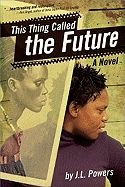
Khosi lives with her beloved grandmother Gogo, her little sister Zi, and her weekend mother in a matchbox house on the outskirts of Pietermaritzburg, South Africa. In that shantytown, it seems like somebody is dying all the time. Billboards everywhere warn of the disease of the day. Her Gogo goes to a traditional healer when there is trouble, but her mother, who works in another city and is wasting away before their eyes, refuses even to go to the doctor. She is afraid and Khosi doesn’t know what it is that makes the blood come up from her choking lungs. Witchcraft? A curse? AIDS? Can Khosi take her to the doctor? Gogo asks. No, says Mama, Khosi must stay in school. Only education will save Khosi and Zi from the poverty and ignorance of the old Zulu ways.School, though, is not bad. There is a boy her own age there, Little Man Ncobo, and she loves the color of his skin, so much darker than her own, and his blue-black lips, but he mocks her when a witch’s curse, her mother’s wasting sorrow, and a neighbor’s accusations send her and Gogo scrambling off to the sangoma’s hut in search of a healing potion.J.L. Powers holds an MA in African history from State University of New York-Albany and Stanford University. She won a Fulbright-Hays grant to study Zulu in South Africa, and served as a visiting scholar in Stanford’s African Studies Department. This is her second novel for young adults.
See the review at WOW Review, Volume 5, Issue 2 and Volume XI, Issue 3.
Anna Hibiscus
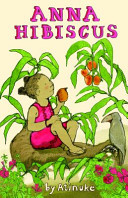
Anna Hibiscus lives in Africa. Amazing Africa. She lives with her whole family in a wonderful house. There is always somebody to laugh or play with. She loves to splash in the sea with her cousins and have parties with her aunties. But more than anything else in the world, Anna Hibiscus would love to see snow.
